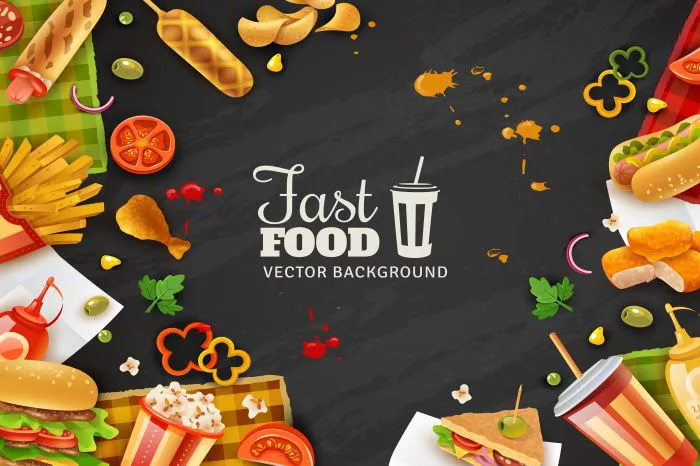Fast food is a staple in many people’s lives due to its convenience and affordability. With the rise of busy lifestyles, fast food chains have grown immensely popular around the world. However, while fast food offers numerous benefits, it also comes with certain drawbacks. This article aims to explore both the good and bad aspects of fast food in detail to help you make an informed choice.
The Good Things About Fast Food
1. Convenience and Time-Saving
One of the most significant advantages of fast food is its convenience. In today’s fast-paced world, many people find themselves juggling work, family, and social commitments. Fast food offers a quick meal option, allowing you to grab a bite on the go without much effort. Whether you’re at home, in the office, or traveling, fast food provides an easy solution when you’re short on time.
2. Affordability
Fast food is typically more affordable compared to other dining options. For individuals and families on a tight budget, fast food offers a relatively cheap meal that satisfies hunger. Many fast food chains also offer deals, combo meals, and value menus, making it even more economical.
3. Wide Availability and Accessibility
Fast food restaurants are widespread, often found in nearly every city and town. This makes it easily accessible for individuals looking for a quick meal. The global presence of fast food chains, such as McDonald’s, Burger King, and KFC, ensures that people can find a familiar taste wherever they are.
4. Taste and Variety
Fast food chains cater to a wide range of tastes. From burgers and fries to pizzas, salads, and beverages, there is something for everyone. The variety of options ensures that you can satisfy cravings for different types of food, and many fast food restaurants offer customizable orders to meet dietary preferences or restrictions.
5. Consistency in Quality
Fast food restaurants are known for providing consistent food quality across their locations. This means that if you visit a particular chain in one city or country, you can expect the same taste and portion size as you would in another. This reliability makes it easier for people to know what to expect, especially when traveling.
The Bad Things About Fast Food
1. High in Calories, Fat, and Sugar
One of the main disadvantages of fast food is its nutritional content. Many fast food meals are high in calories, unhealthy fats, and added sugars. These ingredients can contribute to weight gain, obesity, and related health issues such as heart disease and diabetes when consumed frequently.
2. Lack of Nutrients
Although fast food provides a quick meal, it often lacks essential nutrients like vitamins, minerals, and fiber. Many fast food meals are processed and lack fresh ingredients, which can lead to nutritional deficiencies if consumed as a primary food source. Relying too much on fast food can result in an unbalanced diet.
3. Addictive Nature
Fast food is often engineered to be highly palatable, with combinations of salt, sugar, and fat that trigger the brain’s pleasure centers. This makes fast food addictive for some individuals, leading to overconsumption. Eating fast food regularly can create unhealthy eating habits that are difficult to break.
4. Impact on Mental Health
There is evidence that frequent consumption of fast food may have a negative impact on mental health. Studies have shown a potential link between fast food consumption and mental health issues like depression and anxiety. The processed foods in fast food can also cause inflammation, which may contribute to mood swings and mental fatigue.
5. Environmental Concerns
The fast food industry has faced criticism for its environmental impact. The production, packaging, and disposal of fast food generate a significant amount of waste. Many fast food chains use plastic packaging, contributing to plastic pollution.
Additionally, industrial farming practices used to produce the ingredients for fast food have raised concerns about deforestation and greenhouse gas emissions.
Conclusion
Fast food certainly has both positive and negative aspects. Its convenience, affordability, and wide availability make it a practical option for many people. However, the health risks associated with excessive consumption, as well as environmental concerns, cannot be ignored.
Moderation is key when it comes to fast food. While an occasional fast food meal might not have a significant impact on your health, regular consumption can lead to weight gain, nutritional deficiencies, and other long-term health issues. To make fast food healthier, consider choosing options that include vegetables, lean proteins, and whole grains, and be mindful of portion sizes. In conclusion, fast food is a convenient and tasty option, but it should be enjoyed in moderation to avoid the negative effects on your health and the environment.
Related topics:
- When Will Burger King Have Cheesy Tots Again
- How Does Eating Fast Food Cause Obesity?
- What Is The Healthiest Way to Eat Chicken

